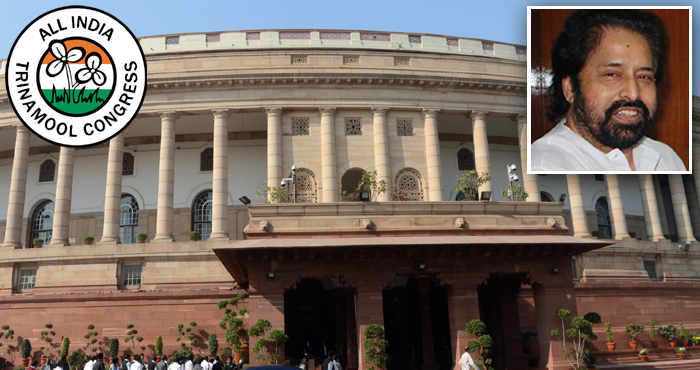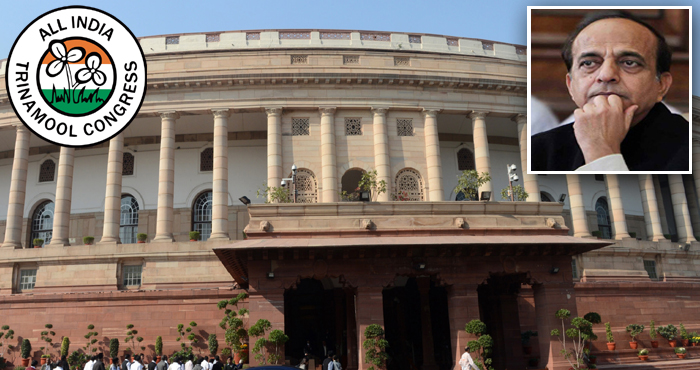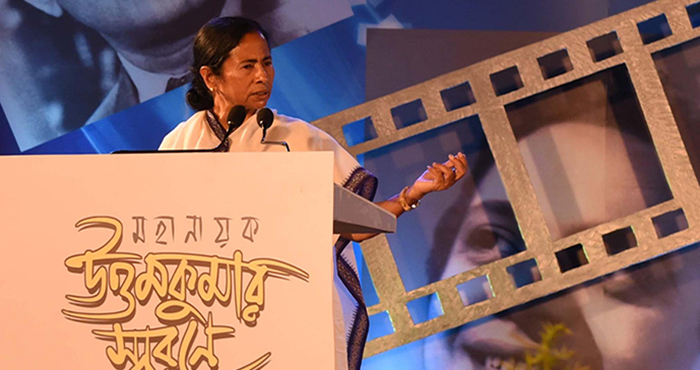FULL TRANSCRIPT
Sir, firstly, we would like to thank the Chair. Last week, we took up some issues of national importance and we had a good debate and discussion. Today also we have taken up the issue of farmers’ distress. We heard this morning that a Calling Attention Motion has been admitted on the flood-like situation in many States; it is also raining very heavily in Bengal. So, the DVC has opened its sluice gates because of which a lot of damage is being caused. So, thank you, Sir, for allowing us to take this issue up.
Let me begin. I was trying to find out where should we begin; what should be made the benchmark here? So, I thought the best benchmark here is to quote the BJP Manifesto of 2014. Let us not think what happened before that, what happened 10 years ago. There were two quotes, because then you get to know what were the promises made and where we are today.
First, “within three years increase profits of farmers upto 50 per cent over the input cost”. BJP Manifesto, page 25.
The next one is also on page 25: “Strengthen and expand the rural credit facilities”.
Through my speech, I will try to tell you where the BJP Government has reached in the last three years. And since I was reading the BJP Manifesto, please pardon me if I also read the AITC Manifesto of 2011, and where we have reached in six years in Bengal.
Someone from the BJP said we never appreciate, the Opposition is forever opposing the Government. We appreciate the Government, because for the last five years the Krishi Karman Award has given by the Central government for foodgrain production, coarse grain production. The award has come to my state of Bengal. So, thank you very much for that.
Regarding the income of farmers, these are the hard numbers: The annual income of farmers in Bengal was Rs 91,000 in 2010. It rose to a little over Rs 2 lakh in 2016.
Speakers before me, both from Madhya Pradesh, spent some time on the PMFY. I would request Madhya Pradesh and all other States to look at the Bengal model, which is unlike the others. It is working very well in Bengal.
Under PMFY, the farmer gives 50 per cent and the Government gives 50 per cent, which is the share of the Central and State Government. What is unique in Bengal is the farmer does not give even Re 1. Ek rupiya bhi farmer nehi deta, pura State Government deta hain aur Central Government deta hain.
I am happy, and I appreciate that the Agriculture Minister is nodding, and that’s why this residual money is also picked up by the farmer. So rather than doing a tu tu main main in Madhya Pradesh, this good model must be followed.
This is a good model and I would urge many more States to follow this model.
There has been a lot of talk and it is good that we should also have something on the table. I certify that the contents are correct and they are based on authentic information. It doesn’t matter which State, it doesn’t matter which party is ruling the State. That is not important. What we believe in is this authentic list of 90 farmers who committed suicide. So, we’ve got the State, we’ve got the name, we’ve got the age and we’ve got the reason for the suicide. This farmers’ list is well taken care of. I would like to place this on the table. In the morning before I came in, I had these documents authenticated.
They do this for many reasons. We don’t have the time to go into whether it’s psychological reason or because they can’t pay back the debt or because they don’t have counselling.
It’s been a reasonably good monsoon compared to the last two years of drought. We are very well aware that India is so dependent on the monsoon because when it comes to per capita storage capacity, America has about 2,000 cubic metres, China has about 1,200, Russia about 6,000. Where are we? We are at 200 cubic metres; hence the high dependence on monsoon. This has not happened in the last few years, this has been happening for a period of time. So we need to address this issue.
Now let’s come to the issue of the great announcement of demonetisation. In fact, I was quite intrigued by what the speaker from the BJP, Jha ji, said. He said, “Naam badal gaya”. Yes, naam badal gaya, lekin kaam badal gaya? That’s a question we have to ask, Sir, because this country thought they voted for a game changer. I’m sure this country doesn’t only want a name-changer.
On the cashless economy, we have the hard facts here. What did the farmers do, whether it was in Eastern UP, whether it was in Gujarat, in Rajasthan – what did they do? They went back to the old system because there was no cash available, they went back to the barter system and the Chief Minister of Madhya Pradesh had to appeal to the traders to pay at least half in cash. if you look at what the RBI called the fire sale of crops, and you compare potato, tomato and onion of last year to this year whether you do it Kolar in Karnataka, whether you do it in Farrukhabad in UP, whether you do it in Lalsagaon in Maharashtra – whether it’s potato, tomato and onion, all prices have shown a considerable drop.
Everyone talked about the MSP, let me make a specific recommendation to the Minister on MSP, and I go back to a colleague of ours who used to sit here, he was an inspirational colleague M.S. Swaminathan ji who was a nominated member. There is too much of talk happening on MSP here is a hard suggestion coming from the Trinamool Congress. What did Swaminathan ji say? He said if you look at the Minimum Support Price, how do you calculate this Minimum Support Price?
Let us say you call this C. For want of a better term, you call it C. So you take all the input cost, you take the seed cost, you take the labour wages, you take all the agro prices, you take the insecticides, the pesticides. You put it all together and you call it C. Let’s say that cost is Rs 1,000. Then he suggests, which we agree, the MSP must be C2. So if Rs 1,000 is input cost, you need to arrive at C2 plus all expenses, which is 50 per cent. Then it becomes Rs 1,500. This is a hard number that we are suggesting. We have done it in a different way in Bengal, we have actually paid the farmer’s part of the premium. I do not want to re-elaborate the point which Digvijay ji and Ram Gopal Yadav ji brought up on the insurance and the claims of farmers. In the Fasal Bima Yojana – I’m not saying that this is a problem in Bengal because the state is covering for you – but in the rest of the country, claims paid to farmers is less than Rs 2,000 crore out of the Rs 6,000 crore, and the Agriculture Minister must look at these.
There was no discussion on farmers’ rights. Today there was a lot of rhetoric from the BJP speakers – we will do this, we will do that. But I want to tell you what was done for farmers, and I will be failing in my duty if I do not recall the historic 2006 Singur agitation for farmers. That is truly fighting for farmers rights. A big corporate company like Tata, in association with all the media houses, wanted to snatch away 1000 acres of land from the farmers. Farmers who owned a total of 600 acres were willing to give without being forced but there were farmers owning a total of 400 acres who were not willing to give away their land. Mamata Banerjee along with Trinamool Congress said the land of the unwilling farmers must not be snatched away. So, we all know what happened in 2006 and we all must remember what happened in December 2006. One lady who went on hunger strike for 26 days with only one objective – that was to save the Indian farmers. And that is why we are glad.
Since then, a lot of the land movement has happened, and the way we look at land has also changed. We were saying that in 2006. Everyone was saying that we were making a political point. And then, no less a body than the Supreme Court of India, in a historic judgement on August 31 last year, passed its judgement that the 400 acres of land, which was usurped from farmers, had to be given back to them. And now farming is happening there, and this is not rhetoric.
I thought that is an appropriate moment to make some constructive suggestions to the Government to see how one or two states in India are using models which are different, and to acknowledge the history and the contribution made by the people who have been part of this movement, and not launching either television channels or changing names; because 60 years ago, almost to the day, the film Mother India was launched in 1957. And now we are coming to 2017, when we talk about bullet trains, smart cities, kisan channels… But the life of the farmer is still the same.
Thank you, Sir.









